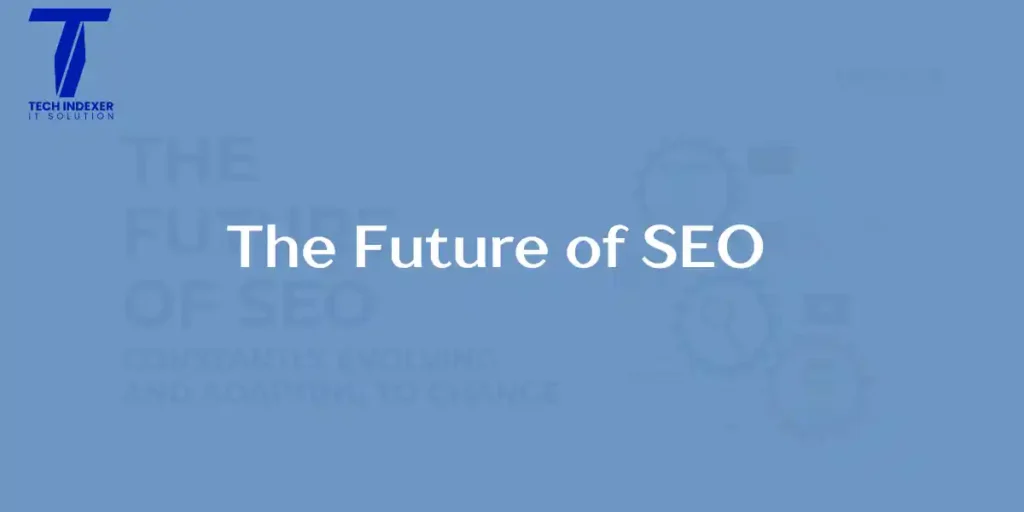The landscape of Search Engine Optimization (SEO) is rapidly evolving, with artificial intelligence (AI) playing a pivotal role in shaping its future. The focus is shifting towards user experience, voice search, and high-quality content that aligns with user intent. Search engines are increasingly prioritizing authenticity and expertise over traditional keyword stuffing. As a result, businesses must adopt innovative strategies that emphasize trust, authority, and AI-powered solutions to stay ahead in the SEO game.
Key Aspects of the Future of SEO
1. AI Integration
AI will revolutionize SEO by enhancing keyword research, content generation, and link-building analysis. AI-powered tools will enable more efficient, data-driven strategies, allowing businesses to refine their SEO efforts with greater precision.
2. Voice Search Optimization
With the increasing use of voice assistants, optimizing content for natural language queries and conversational tone will become crucial. Websites must adapt to this trend by focusing on long-tail keywords and question-based queries.
3. User Experience (UX) Focus
Search engines will continue to prioritize websites that offer an excellent user experience. Factors such as fast loading times, intuitive navigation, and mobile-first design will significantly impact search rankings.
4. E-A-T (Expertise, Authoritativeness, Trustworthiness)
To rank higher in search results, content creators must establish credibility and demonstrate expertise in their respective fields. High-quality, well-researched content will be essential in gaining the trust of both users and search engines.
5. Personalized Search Results
Search engines will leverage user behavior and search history to deliver highly personalized search results. Businesses must understand their audience and tailor content accordingly to enhance engagement and visibility.
6. Visual Search Optimization
The importance of image and video search is growing, making it essential to optimize visual content with relevant descriptions, alt text, and structured data. This trend will drive more traffic from search engines that prioritize multimedia content.
7. Local SEO Emphasis
For businesses targeting local customers, refining local SEO strategies will be key to appearing in geographically relevant search results. Optimizing Google My Business listings and acquiring local backlinks will be crucial components of this approach.
8. Content Quality Over Quantity
Rather than producing a high volume of content, the emphasis will be on creating valuable, informative content that directly addresses user needs. Well-researched, in-depth articles will outperform generic content.
9. Data Privacy Concerns
With evolving privacy regulations, SEO strategies must adapt to changes in user data access and tracking capabilities. Businesses must ensure compliance with data protection laws while maintaining effective digital marketing strategies.
Content Optimization for Future SEO Success
As SEO continues to evolve, optimizing content effectively is crucial for maintaining high rankings and engaging users. Below are some essential strategies for content optimization:
1. Understanding User Intent
- Conduct in-depth keyword research to identify what users are searching for.
- Create content that directly answers user queries and provides value.
2. Structuring Content for Readability
- Use clear headings, subheadings, and bullet points to improve readability.
- Break content into digestible sections to enhance user experience.
3. Implementing Schema Markup
- Use structured data to help search engines understand content better.
- Optimize for rich snippets to increase click-through rates.
4. Enhancing Multimedia Content
- Use high-quality images, videos, and infographics to make content more engaging.
- Optimize images with alt text and captions for better accessibility and searchability.
5. Leveraging Internal and External Linking
- Include internal links to guide users to relevant content on your website.
- Build authoritative external links to establish credibility and improve rankings.
6. Refreshing and Updating Content
- Regularly update older content to keep it relevant and competitive.
- Monitor content performance and optimize based on analytics data.
By following these strategies, businesses can ensure their content remains relevant and competitive in the ever-changing SEO landscape.
Conclusion
The future of SEO lies in understanding and catering to user intent through a combination of high-quality content, technical optimization, and AI-driven tools. By focusing on authenticity, user experience, and personalization, businesses can enhance their visibility and stay competitive in the ever-evolving digital landscape. As SEO becomes more sophisticated, adapting to these trends will be crucial for long-term success.
FAQs
1. How will AI impact SEO in the future?
AI will streamline SEO processes such as keyword research, content creation, and link analysis, making SEO strategies more data-driven and efficient.
2. Why is voice search optimization important?
With the rise of voice assistants, optimizing for natural language queries is essential to ensure visibility in voice search results.
3. What role does user experience play in SEO?
Search engines prioritize websites with fast loading times, easy navigation, and mobile-friendly designs to enhance user satisfaction.
4. How can businesses establish E-A-T?
By producing high-quality, well-researched content, obtaining credible backlinks, and demonstrating expertise in their field.
5. What is personalized search, and how does it affect SEO?
Search engines use user behavior and history to deliver customized results, requiring businesses to tailor content for targeted audiences.
6. How can visual search be optimized?
By using relevant descriptions, alt text, and structured data to ensure images and videos are easily searchable.
7. What are the best practices for local SEO?
Optimizing Google My Business listings, gathering local backlinks, and incorporating location-specific keywords are essential for local search rankings.
8. How does data privacy impact SEO?
With increasing privacy regulations, businesses must adapt to limited user data access while maintaining effective SEO strategies.





